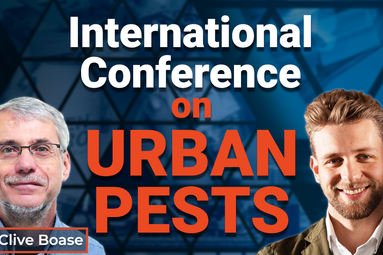Pest control in Italy during Covid-19 features in this week’s Talking Pest Management interview with Monica Biglietto. Based in Naples, Italy, Monica is a trained chemist, chief executive and technical director of pest control company, Fumigat Srl. She is the ANID (the Italian pest control trade association) representative to CEPA (Confederation of European Pest Management Associations) and is also on the CEPA board of directors.
Asked about Italy’s initial reaction to the Covid-19 crisis, Monica admits at first it was one of confusion. But she neatly sums up the current challenge saying: “We had to change from dealing with macro pests to micro invisible pests. Disinfection became our main activity with safety of our own personnel a key consideration.”
With protective clothing hard to find, staff teams and their travel reorganised and all administrative staff working from home, operations became very different. However, the crisis has brought the value and level of professionalism in the industry to greater public recognition. With ANID’s leadership dealing at Ministerial level and with the production of guides and protocols, the industry has worked together co-operatively, rather than in competition.
Fumigation has always been a significant sector in Italy and asked why this is so, Monica explains how there has always been a culture of fumigation, as a recognised treatment for bacterial activity, probably mainly brought on by the high temperatures, often over 40°C, for long periods in the country.
Looking to the future, Monica identifies the increasingly important role played by women in the industry along with the significance of the CEPA MoU (Memorandum of Understanding) activities which promote professionalism and she encourages everyone to embrace this.
For the longer 10-20 year future, Monica sees a great challenge, out of respect for the environment, of switching to pest control with only vital, or no, use of biocides. Heat – both hot and cold – along with the use of physical traps are seen as ideal alternatives.


























